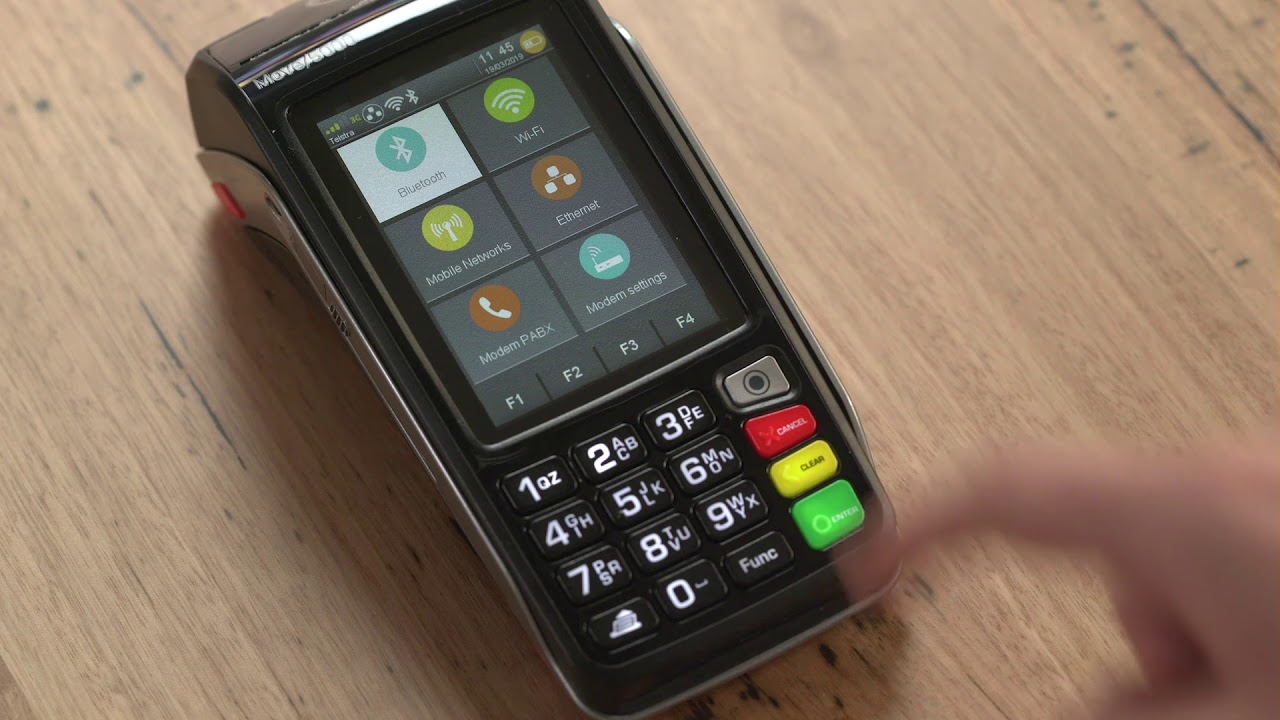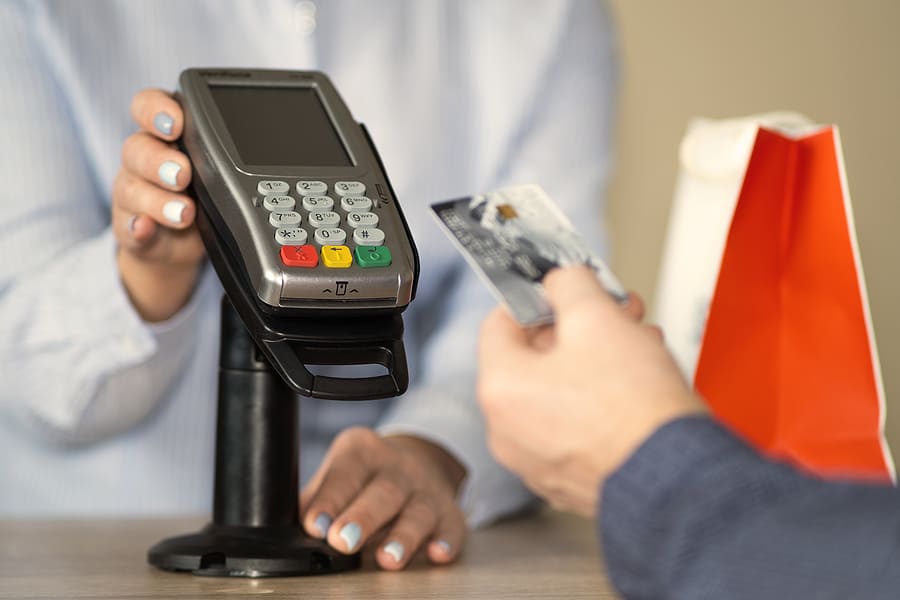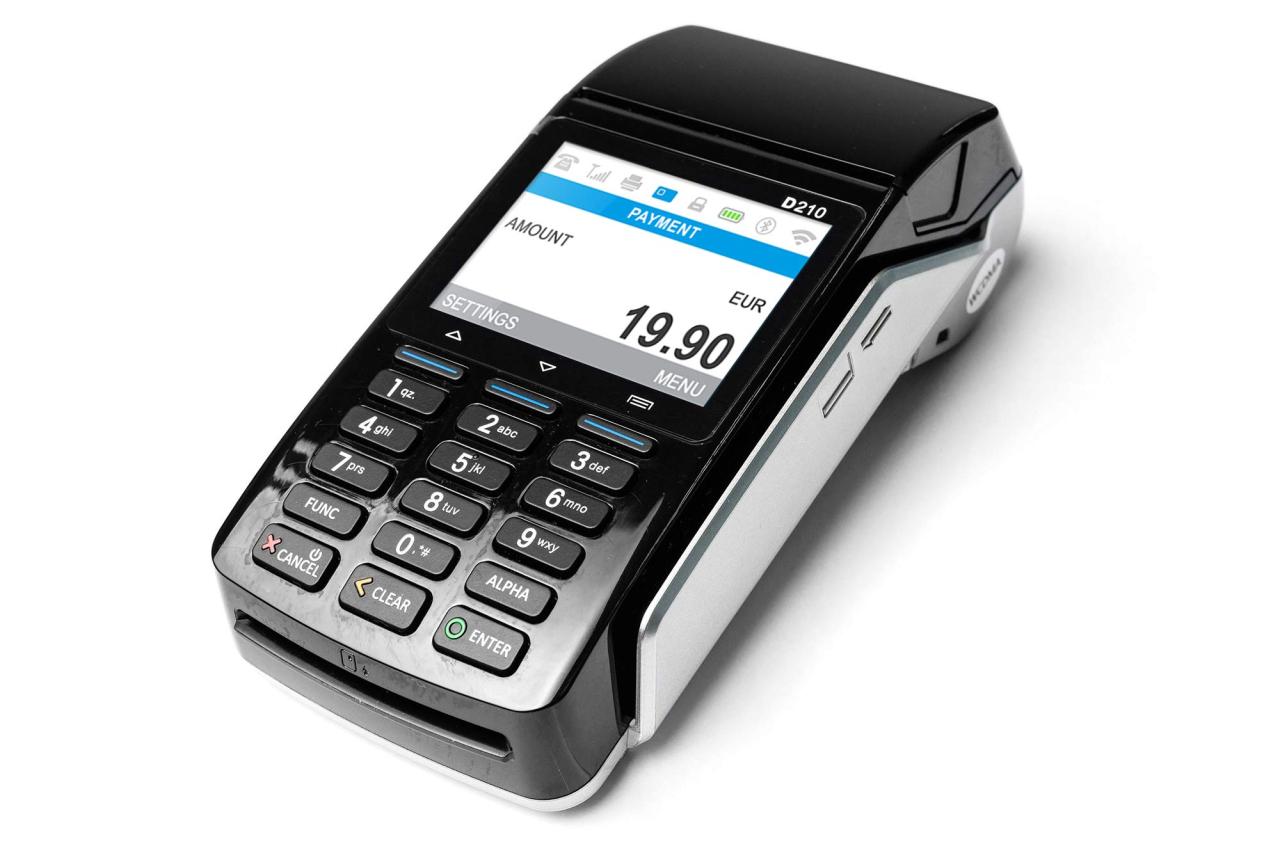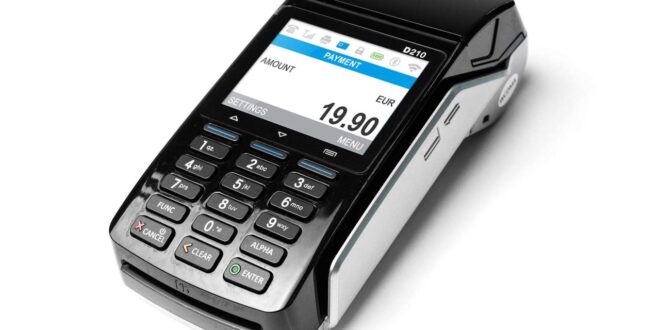Where to get a credit card machine for small business is a question many entrepreneurs grapple with. Accepting payments seamlessly is crucial for any business, but navigating the world of credit card processing can feel overwhelming. From understanding the various types of processing to choosing the right machine for your specific needs, there are many factors to consider.
This guide will delve into the intricacies of credit card processing for small businesses, providing a comprehensive overview of the available options and the key factors to consider when making a decision. We’ll explore the different types of credit card machines, their associated costs, and the features that matter most. We’ll also highlight reputable providers and discuss the setup process, ensuring you’re equipped to make an informed choice.
Understanding Credit Card Processing for Small Businesses
Accepting credit cards is essential for most small businesses today. It provides convenience for customers and increases your sales potential. However, navigating the world of credit card processing can be overwhelming, with various options and associated fees. Understanding the different types of processing, fees, and solutions will help you make informed decisions for your business.
Types of Credit Card Processing
Credit card processing involves securely transmitting payment information from the customer’s card to the merchant’s bank account. There are several common types of processing methods:
- Point of Sale (POS) Systems: These systems are physical terminals that integrate with your cash register or computer. They allow you to swipe, dip, or tap credit cards and process transactions directly at the point of sale. POS systems are popular for retail stores, restaurants, and other businesses with physical locations.
- Mobile Payments: Mobile payment processing allows you to accept credit cards through your smartphone or tablet. This is ideal for businesses that operate on the go, such as food trucks, mobile salons, or service providers. Popular mobile payment solutions include Square, Stripe, and PayPal.
- Online Gateways: Online gateways enable you to accept credit card payments through your website or e-commerce platform. They provide secure payment forms and integrate with shopping carts and order management systems. Examples include Shopify Payments, PayPal, and Authorize.Net.
Credit Card Processing Fees
Credit card processing comes with various fees that can significantly impact your bottom line. Understanding these fees is crucial for budgeting and profit optimization:
- Transaction Fees: These are the most common fees and are charged for each successful credit card transaction. They are typically a percentage of the transaction amount plus a small per-transaction fee.
- Monthly Fees: Some processors charge a fixed monthly fee for using their services, regardless of the number of transactions processed.
- Setup Fees: These fees are often charged once at the beginning of your contract to cover the initial setup and activation of your account.
- Other Fees: Additional fees may apply for specific services, such as chargebacks (disputed transactions), international transactions, or early contract termination.
Comparing Credit Card Processing Solutions
When choosing a credit card processing solution, consider the following factors:
- Transaction Fees: Compare the transaction fees of different processors, as they can vary significantly. Look for solutions with transparent and competitive pricing.
- Monthly Fees: Determine if a monthly fee is included in the pricing and whether it aligns with your expected transaction volume.
- Setup Fees: Factor in any setup fees when comparing different solutions. Some processors may offer promotional periods with waived setup fees.
- Features and Functionality: Consider the features and functionality offered by each processor. Some solutions may provide additional features like inventory management, customer relationship management (CRM), or reporting tools.
- Customer Support: Choose a processor with reliable customer support, as you may need assistance with technical issues or account management.
- Security: Ensure the processor meets industry standards for security and data protection. Look for solutions with PCI DSS compliance and encryption technology.
Choosing the Right Credit Card Machine for Your Needs
Navigating the world of credit card machines can be overwhelming, especially for small businesses. With various options available, selecting the right one that aligns with your specific needs is crucial for seamless transactions and efficient operations.
Factors to Consider When Choosing a Credit Card Machine
Understanding your business needs and requirements is paramount in selecting the right credit card machine. Consider the following factors:
- Business Size: If you are a small startup, a portable or mobile reader might suffice. However, larger businesses with higher transaction volumes might benefit from a countertop terminal or integrated POS system.
- Transaction Volume: High-volume businesses require a credit card machine with robust processing capabilities, while low-volume businesses can opt for simpler options.
- Industry-Specific Needs: Certain industries have specific requirements, such as the need for EMV chip readers for compliance or mobile readers for on-the-go transactions.
- Budget: Credit card machines come with varying price points. It’s essential to determine your budget and select a machine that offers the necessary features within your financial constraints.
- Payment Processing Fees: Different providers offer varying processing fees. Compare rates and fees to ensure you are getting the best value for your money.
- Customer Service: Look for a provider with reliable customer support and technical assistance in case of any issues.
Hardware Options for Credit Card Machines
Choosing the appropriate hardware depends on your business needs and preferences.
- Countertop Terminals: These are traditional credit card machines that are stationary and ideal for businesses with a fixed location and high transaction volumes. They offer features such as receipt printing, EMV chip readers, and contactless payment support.
- Mobile Readers: These portable devices allow businesses to accept payments on the go. They are perfect for mobile vendors, delivery services, and businesses that need to process transactions outside of a fixed location.
- Integrated POS Systems: These systems combine a credit card machine with other features, such as inventory management, customer relationship management (CRM), and reporting. They are ideal for businesses with complex operations and require comprehensive management solutions.
Features to Look for in a Credit Card Machine
Modern credit card machines offer various features that enhance transaction efficiency and customer experience.
- EMV Chip Reader: EMV chip technology provides an extra layer of security by encrypting transaction data. It is crucial for businesses to comply with industry standards and protect against fraud.
- Contactless Payment Support: Contactless payment methods, such as Apple Pay and Google Pay, are becoming increasingly popular. Look for a credit card machine that supports these options for faster and more convenient transactions.
- Receipt Printing Capabilities: Most businesses require receipt printing for customers. Ensure the credit card machine has reliable receipt printing functionality.
- Security Features: Look for features that enhance security, such as encryption, fraud prevention tools, and data protection measures.
- Reporting and Analytics: Some credit card machines offer reporting and analytics features that provide insights into sales trends, customer behavior, and other valuable business data.
Popular Credit Card Machine Providers

Choosing the right credit card machine provider is crucial for your small business. You need a provider that offers reliable equipment, competitive pricing, and excellent customer support.
Popular Credit Card Machine Providers
Several reputable providers offer credit card processing solutions for small businesses. Here are some of the most popular options:
- Square: Known for its user-friendly interface and affordable pricing, Square is a popular choice for small businesses.
- Strengths: Square offers a free reader, transparent pricing, and a user-friendly mobile app. It also provides excellent customer support and a variety of features, including inventory management, customer relationship management (CRM), and online store capabilities.
- Weaknesses: Square’s pricing can be higher for businesses with high transaction volumes. Its hardware options are limited compared to some other providers.
- Shopify Payments: Integrated seamlessly with the Shopify e-commerce platform, Shopify Payments is a great option for online businesses.
- Strengths: Shopify Payments offers competitive rates, no monthly fees, and a streamlined checkout experience. It also provides access to Shopify’s extensive suite of tools and features.
- Weaknesses: Shopify Payments is only available to businesses using the Shopify platform. It does not offer traditional point-of-sale (POS) hardware.
- PayPal: A well-known name in online payments, PayPal offers a range of credit card processing solutions for small businesses.
- Strengths: PayPal is widely accepted and offers a secure payment gateway. It provides access to a global network of customers and merchants.
- Weaknesses: PayPal’s fees can be higher than some other providers, and its customer support can be difficult to reach.
- Clover: Clover is a popular choice for businesses looking for a comprehensive POS system with advanced features.
- Strengths: Clover offers a variety of hardware options, including countertop terminals, mobile readers, and self-service kiosks. It provides robust reporting and analytics features, along with employee management tools.
- Weaknesses: Clover’s hardware can be expensive, and its pricing structure can be complex. It also requires a monthly subscription fee.
- Worldpay from FIS: Worldpay from FIS is a leading provider of payment processing solutions for businesses of all sizes.
- Strengths: Worldpay from FIS offers a wide range of payment processing solutions, including online payments, mobile payments, and in-store payments. It provides global reach and comprehensive security features.
- Weaknesses: Worldpay from FIS can be expensive, especially for small businesses. Its customer support can be difficult to reach.
Comparing Credit Card Machine Providers
| Provider | Pricing | Features | Customer Support |
|—|—|—|—|
| Square | 2.6% + 10¢ per transaction | Free reader, transparent pricing, user-friendly mobile app, inventory management, CRM, online store capabilities | Excellent customer support |
| Shopify Payments | 2.9% + 30¢ per transaction | No monthly fees, seamless integration with Shopify, streamlined checkout experience, access to Shopify’s tools and features | Good customer support |
| PayPal | 2.9% + 30¢ per transaction | Widely accepted, secure payment gateway, access to a global network | Difficult to reach customer support |
| Clover | Variable pricing | Variety of hardware options, robust reporting and analytics, employee management tools | Good customer support |
| Worldpay from FIS | Variable pricing | Wide range of payment processing solutions, global reach, comprehensive security features | Difficult to reach customer support |
Benefits and Drawbacks of Partnering with Specific Providers
Banks
* Benefits: Banks often offer competitive rates and comprehensive support. They may also provide access to additional financial services, such as loans and merchant cash advances.
* Drawbacks: Banks can be slow to respond to inquiries and may have rigid contract terms.
Independent Processors
* Benefits: Independent processors often offer more flexible pricing and customized solutions. They may also provide better customer support than banks.
* Drawbacks: Independent processors may not have the same level of security or reliability as larger banks.
Online Platforms
* Benefits: Online platforms are typically easy to use and offer transparent pricing. They may also provide access to a variety of features, such as inventory management and customer relationship management.
* Drawbacks: Online platforms may not offer the same level of support as traditional providers. They may also be more susceptible to security breaches.
Setting Up and Using a Credit Card Machine: Where To Get A Credit Card Machine For Small Business
Setting up and using a credit card machine is a straightforward process that allows your business to accept credit and debit card payments. This section will guide you through the steps involved, from account setup to processing transactions.
Account Setup
Before you can start using a credit card machine, you need to set up an account with a payment processor. Payment processors act as intermediaries between your business and the card networks (Visa, Mastercard, etc.). They handle the transaction details and deposit the funds into your bank account.
- Choose a Payment Processor: Research different payment processors to find one that meets your business needs. Consider factors such as fees, features, customer support, and integration with your existing systems.
- Apply for an Account: Once you’ve chosen a processor, apply for a merchant account. This usually involves providing business information, bank details, and possibly a credit check.
- Complete the Setup: Once your account is approved, the payment processor will provide you with instructions on how to set up your account and connect your credit card machine.
Hardware Installation, Where to get a credit card machine for small business
After setting up your account, you’ll need to install the hardware. This typically involves connecting the credit card machine to your internet connection and your point-of-sale (POS) system.
- Connect the Machine: Depending on the type of machine, you may need to connect it to your internet via Ethernet cable or Wi-Fi.
- Install Software: Some machines may require software installation on your POS system or computer. Follow the instructions provided by the payment processor.
- Test the Connection: Once the hardware is installed, test the connection by running a test transaction. This ensures that the machine is communicating with the payment processor correctly.
Processing Credit Card Transactions
Once your machine is set up, you can start processing transactions. Here’s a step-by-step guide:
- Enter the Amount: Enter the amount of the transaction on the machine’s keypad.
- Swipe, Insert, or Tap: Ask the customer to swipe, insert, or tap their card.
- Enter PIN: If the transaction requires a PIN, the customer will need to enter it.
- Authorize Transaction: The machine will communicate with the payment processor to authorize the transaction.
- Print Receipt: The machine will print a receipt for the customer and a copy for your records.
Tips for Secure and Efficient Credit Card Processing
- Keep Your Machine Secure: Protect your credit card machine from unauthorized access by storing it securely and using a strong password.
- Regularly Update Software: Keep your credit card machine’s software up to date to ensure it has the latest security features.
- Follow PCI DSS Compliance: Adhere to the Payment Card Industry Data Security Standard (PCI DSS) to protect sensitive cardholder data.
- Monitor Transactions: Regularly review your transaction history to identify any suspicious activity.
- Use a Secure Network: Connect your credit card machine to a secure Wi-Fi network or use a dedicated Ethernet connection.
Additional Resources and Support

Navigating the world of credit card processing can feel overwhelming, especially for new business owners. Fortunately, you’re not alone! There are numerous resources available to help you understand the process, choose the right equipment, and troubleshoot any issues you might encounter.
Resources for Further Information
There are many resources available to help you learn more about credit card processing. Here are a few to get you started:
- Industry Blogs and Websites: Numerous blogs and websites offer insightful articles, tips, and news related to credit card processing. Some popular options include:
- The Payment Processors: This blog covers a wide range of topics, including payment processing trends, industry news, and tips for small businesses.
- The Card Payment Guru: This website offers comprehensive information on credit card processing, including guides, tutorials, and FAQs.
- Small Business Trends: This website features articles and resources specifically tailored for small business owners, including information on credit card processing.
- Forums and Online Communities: Engaging with other small business owners in online forums can provide valuable insights and solutions to common credit card processing challenges. Some popular forums include:
- Reddit’s r/SmallBusiness: This subreddit offers a platform for small business owners to discuss various topics, including payment processing.
- The Small Business Forums: This forum allows business owners to ask questions, share experiences, and learn from each other.
- LinkedIn Groups: Joining relevant LinkedIn groups dedicated to small business or payment processing can connect you with industry professionals and experts.
- Regulatory Bodies: Understanding the regulations governing credit card processing is crucial. Organizations like the Payment Card Industry Security Standards Council (PCI SSC) provide valuable information and resources:
- PCI SSC Website: This website provides comprehensive information on PCI DSS compliance, including standards, resources, and training materials.
- PCI DSS FAQs: This section of the PCI SSC website addresses common questions about PCI DSS compliance, helping you understand the requirements and best practices.
Customer Support and Technical Assistance
Most credit card machine providers offer customer support and technical assistance to help you navigate any challenges you might face. Here’s what you can expect:
- Phone Support: Many providers offer 24/7 phone support to address urgent issues or answer immediate questions.
- Email Support: For less urgent inquiries, you can typically reach out to customer support via email.
- Online Chat Support: Some providers offer live chat support on their website, providing instant assistance for basic questions.
- Knowledge Base and FAQs: Most providers have a comprehensive knowledge base and FAQs section on their website, where you can find answers to common questions and troubleshoot basic issues.
Troubleshooting Common Issues
While credit card machines are generally reliable, you might encounter occasional issues. Here are some common problems and solutions:
- Connection Issues: Ensure your credit card machine is properly connected to your internet or phone line. Check your network connection and try restarting your machine and modem/router.
- Card Declines: If a card is declined, check if the card is expired, if the cardholder has sufficient funds, or if there are any security issues with the card.
- Printing Issues: If your receipt printer is not working, ensure the paper is loaded correctly and the printer is connected properly. Check if there are any paper jams or ink cartridge issues.
- Software Updates: Keep your credit card machine software up-to-date to ensure optimal performance and security. Regularly check for available updates and install them promptly.
Last Recap

In conclusion, acquiring a credit card machine for your small business is a critical step towards ensuring smooth transactions and maximizing your revenue. By carefully considering your specific needs, exploring the available options, and choosing a reputable provider, you can find the perfect solution to streamline your payment processing and empower your business for success.
Clarifying Questions
What are the most common credit card processing fees?
Common fees include transaction fees (a percentage of each sale), monthly fees, setup fees, and sometimes, chargeback fees for disputed transactions.
Do I need a separate account for my credit card machine?
Some providers require you to open a merchant account, while others allow you to process payments through your existing bank account. It’s important to understand the requirements of each provider.
How secure are credit card machines?
Reputable providers prioritize security with features like EMV chip readers, contactless payment support, and encryption technology to protect sensitive data.
What kind of customer support is available?
Providers typically offer phone, email, and online support. It’s helpful to inquire about their response times and availability.
 Norfolk Publications Publications ORG in Norfolk!
Norfolk Publications Publications ORG in Norfolk!

